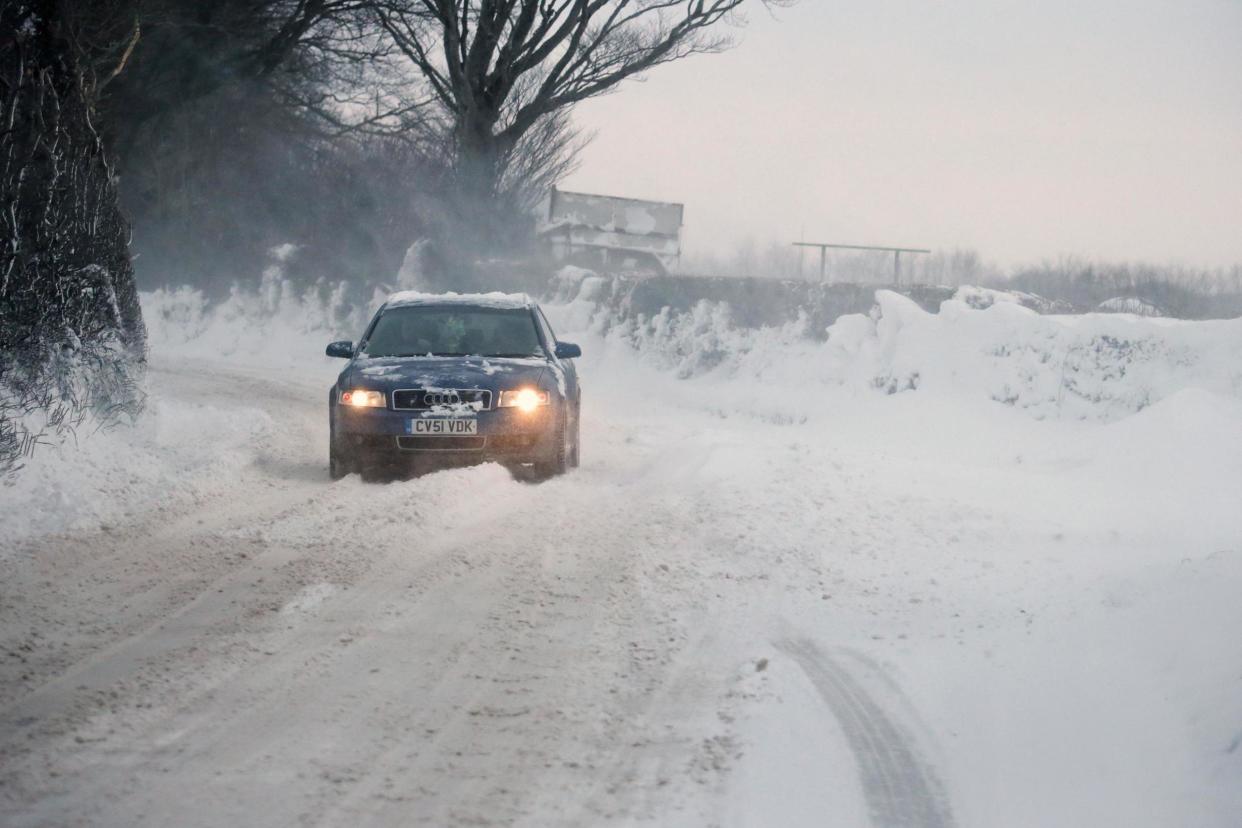The Reader: We cannot afford to keep dismissing bad weather as a one-off

The “Beast from the East”, followed by the latest cold snap of snow and freezing weather over the weekend, may be a sign of things to come in this country.
Next winter and some of the winters in the near future could be even worse. If the weather patterns that we have recently suffered from occurred in a December, January or even early February, it could quickly lead to a national gridlock.
A gridlock of our infrastructure for an extended period would be a national disaster, as we have already witnessed in some areas.
Of course, I am certain our Government would have a Cobra meeting to discuss the situation. However, the problem is that it would then announce that the severe weather was a one-in-a-100-year event, and that no one could have predicted that the situation could have been as bad as it was. This was the same excuse used for the floods.
The past few weeks show that our Government and local authorities need to have an urgent review of their contingency plans for such an event.
We need to make preparations for the worse possible situation, while hoping for the best.
Brian Smith
EDITOR'S REPLY
Dear Brian
Thank you for your letter. You’re not alone in wondering why, if trains can run in Siberia, the transport network here in the UK ceases to function as soon as we get snow.
Of course, heavy snow isn’t an annual event here. But it’s not that unusual, and given the enormous costs to the London economy when transport stops functioning, it’s worth considering why we can’t invest in the machinery that’s needed to keep roads and rails open.
Even if they were used only a few times a decade, the cost would probably be balanced by the savings to individuals and businesses.Network Rail would have to invest in machinery to keep lines open. As for snow ploughs and the like, the cost would have to be borne by local authorities, yet they are, worryingly, spending their contingency funding in areas such as social care.
As you say, we do need to think ahead. Ten people died because of the snow this year, but it is not just the Government that is responsible.
In other parts of Europe, people are legally obliged to clear pavements in front of their homes. Perhaps we should do the same.
Melanie McDonagh, Senior Writer
Call Crossrail the Liz Line so Londoners can honour the Queen
It appears that Crossrail is already fixed in the minds of many Londoners. Its official title — the Elizabeth line — is so long it is unlikely to become common parlance. So what about the “Liz line”? It is short, lively and still commemorates the Queen. If the Standard started using it, there is a chance that it would stick. Otherwise, Londoners are likely to call it Crossrail. That would be a pity.
Terence Bendixson
I was sorry to read about the planned bespoke public artworks for the Elizabeth line [March 13]. Wouldn’t the money be much better spent reducing ticket prices, in light of falling Tube passenger numbers?
Since it is supposed to be for our benefit anyway, shouldn’t the public be allowed to vote on which ones we have?
R Constantine
Jump racing kills too many horses
Yet again, the Cheltenham Festival was marred by an unacceptable number of racehorse fatalities. There were four on Gold Cup day alone and three in the very same race, all suffering horrific injuries and agonising deaths. This means there have now been 1,668 fatalities in the past 4,000 race days.
There is a huge amount of money involved in British horse racing and as such, a total ban on the sport is most unlikely. We must therefore ensure the industry is independently regulated and the welfare of horses is the number one priority.
I am a horse-racing fan myself but I am sickened by the largely avoidable suffering that currently besets the sport. Together, we can all strive to improve the welfare of horses while continuing to watch a sport that brings pleasure to millions of people.
M Jones
Let walkers back in the City's culture mile
I was pleased to read Sir Nicholas Kenyon’s and the City of London Corporation’s plans for the Culture Mile [“The Culture Mile that will transform arts in the City”, Comment, March 16].
These must surely include improving pedestrian routes — in a sense reinstating those lost when the Barbican was built. There are remarkable opportunities for establishing better links at ground level from the City to the complex: along Wood Street and past the former Cripplegate.
By the present Museum of London, hidden by raised walkways and a car park entrance, are the surviving, but neglected, ancient City walls, which should form part of a magnificent public space next to the new music centre.
David Harrison, London Living Street
Post-Brexit border checks spell chaos
Transport Secretary Chris Grayling argued insistently on BBC’s Question Time that the 29-mile tailbacks outside Dover were nonsensical because post-Brexit border checks are neither planned nor necessary, mirroring existing arrangements with non-EU countries which trade easily through east coast British ports.
It is reasonable to suggest much of this trade traffic results from the EU’s trading arrangements with 68 non-EU nations — requiring minimal border checks — whose terms would lapse post-Brexit, assuming re-implementing all 68 could not be rushed through on March 30 2019, the day after Britain leaves the EU.
It worries me that, even after winning in the referendum, “Team Leave” are so facile with their public assurances.
Sebastian Bosley

 Yahoo News
Yahoo News 
